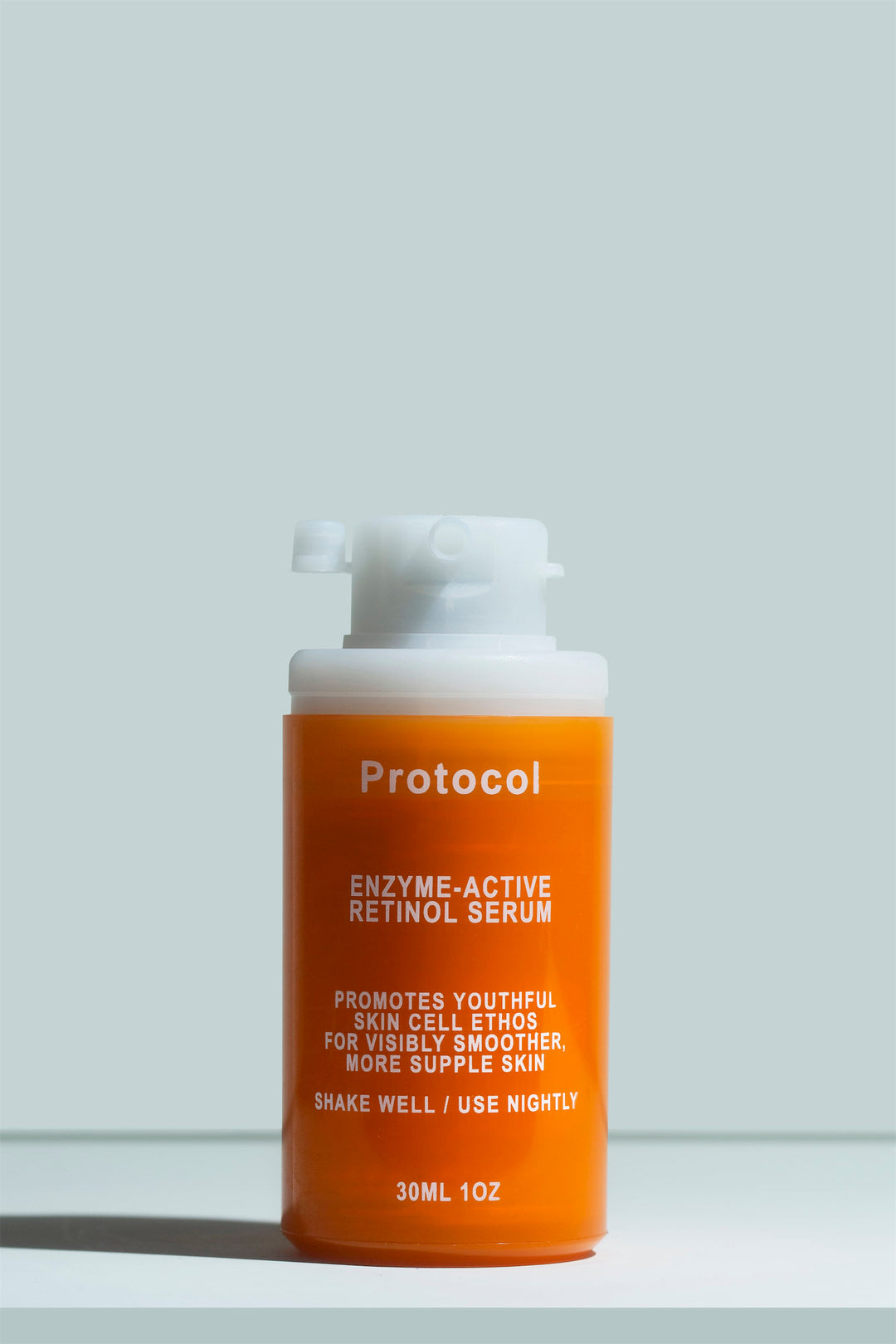Best Vitamins for Dark Spots

Vitamins are incredible. They’re essential for our body’s basic functioning and when applied topically they help the skin thrive. If you’re dealing with hyperpigmentation, a lot of vitamins are exceptional for dark spots, helping to disrupt the steps of the processes that cause them.
Read on to discover the best vitamins for dark spots, with clear explanations of the scientific evidence behind them. We’ll recommend a few more skin-brightening ingredients worth considering and help you figure out how to add everything to your skincare routine.
Dark spot explainer
Dark spots is the term most of us use casually to talk about a common type of hyperpigmentation. They present as flat, dark brown spots or patches, usually with a clear area of demarcation.
Dark spots form as a result of abnormal melanocyte functions. Melanocytes are the cells responsible for pigment production, which they often do as a reaction to trauma or inflammation. Dark spots usually occur as a reaction to sun exposure, but factors like hormones, age, irritation, and even certain nutritional deficiencies can play a role.
If you’re very prone to dark spots, it’s important to familiarize yourself with the signs that it might be cancerous or precancerous, such as uneven borders and rapid changes in size.
Vitamin A
Vitamin A is an underrated powerhouse of a vitamin for dark spots. In skincare, it’s more commonly referred to as retinol, but there are other types of retinoids including retinal, adapalene, and retinoic acid.
Vitamin A can help get rid of dark spots by speeding up the process of epidermal renewal.
It triggers receptors in the skin that regulate cell growth, ensuring healthier differentiation. This helps the skin shed pigmented skin while preventing continued melanin production.
Research suggests that over a short period, vitamin A surpasses vitamin C for fading dark spots, while vitamin C beats out vitamin A for reducing fine lines and wrinkles.
If you’d like to add a vitamin A serum for dark spots to your skincare routine, we’ve made our Enzyme-Active Retinol Serum to be as potent, effective, and gentle as possible. It’s made with retinal, with a powerful version of vitamin A that requires fewer conversions to impact the skin.
Research shows that its effects on reducing visible signs of photodamage such as dark spots are comparable to retinoic acid but with less risk of irritation, and our clients’ experience seems to match.
Vitamin C
The vast majority of skincare enthusiasts will tell you that vitamin C is the best vitamin for dark spots, thanks to its multi-pronged mechanism of action. It helps reduce the activity of tyrosinase, which is the enzyme that normally triggers melanin production.
As an antioxidant, vitamin C is a powerful protectant against further worsening of pigmentation and photodamage. It’s also promising as a remedy for other signs of photoaging, like dullness, fine lines, and wrinkles.
The actual research on humans showing that vitamin C can fade dark spots is relatively limited, or often has it paired with other active ingredients. This might be because of the difficulty of making vitamin C serums that work!
For a vitamin C serum to be effective, it has to contain vitamin C’s most bioavailable form: ascorbic acid. It must be made in a photostable, airtight container and with the right pH. We kept all of this in mind when creating the Vitamin C Superserum, a 10% ascorbic acid serum designed to protect the skin in the daytime and enhance the results of using vitamin A at night.
Vitamin B3
Next, the other must-have vitamin for dark spots is vitamin B3. You might be more familiar with it as niacinamide, one of the most popular skincare ingredients from the last five years. Niacinamide's skin benefits are plentiful and impressive: It has anti-aging, protective, soothing, oil-balancing, and moisturizing effects, just to name a few.
When it comes to pigmentation, studies show that vitamin B3 is effective at visibly reducing the severity of diffused discoloration, likely by preventing the transfer of melanin from melanocytes to skin cells.
Importantly, you don’t have to use a vitamin serum for dark spots: A moisturizer with niacinamide at a 5% concentration will work just as well, so you won’t have to get bogged down by single-ingredient serums. Research also shows that it works especially well in combination with retinoids.
Vitamin E
Vitamin E is a phenomenal antioxidant in skincare, although it’s not an ideal vitamin for dark spots. Also known as tocopherol, it works by protecting the skin from oxidative damage caused by pollution and the sun. Because it’s oil-soluble, it’s quite stable and easy to formulate with, it helps stabilize other vitamins, and it can impact components of the skin that vitamin C cannot.
It can reduce the extent of damage caused by sun exposure, and might even boost your sun protection methods (although it’s not as powerful as vitamin C). There’s minimal reason to believe it could help with dark spots on its own, but it’s a valuable addition to other formulas, such as moisturizers or serums.
Other ingredients for dark spots
Besides the vitamins for dark spots that we’ve already mentioned, there are plenty of other skincare ingredients worth using
- AHAs: By carefully removing the top layers of skin, alpha hydroxy acids like glycolic and lactic acid can facilitate faster skin renewal while clearing away pigmented skin.
- Azelaic acid: Azelaic acid is most popular for its soothing abilities. However, like vitamin C, azelaic acid can also inhibit tyrosinase, making it a phenomenal option for those with sensitive skin and pigmentation.
- Alpha-arbutin: This compound is related to the prescription skin-brightening medication hydroquinone. Researchers suggest that it works by inhibiting melanin production.
- Tranexamic acid: This exciting skincare ingredient is still fairly new so research is limited, but early evidence suggests it could help with both dark spots and red post-acne marks.
- Prescription hydroquinone: While certain side effects have made this prescription dark spot treatment controversial, it’s undeniable that hydroquinone is a fast-acting option. If you’ve not had success with other treatments, you can discuss this option with your doctor.
How to use vitamins for dark spots
You won’t achieve the skin-clarifying effects of these vitamins by just piling them on - in fact, using too much too soon can make your dark spots worse. At the same time, combining a few ingredients, like retinol and vitamin C, is shown to provide fantastic results. With that in mind, here’s how to combine and use vitamins for dark spots while keeping your skin safe.
- One at a time: By only introducing one new skincare product at a time, you can reduce your chances of irritation that can worsen pigmentation. It’ll also allow you to better evaluate the efficacy of each product.
- Consider slow introductions and patch testing: This is another method that will help you avoid negative reactions. First, patch test new products on other parts of your body. Then introduce them to the face by only using it once every few days to start.
- Be watchful: Pay close attention to signs of irritation, especially while trialing new products. Irritation contributes to the formation of dark spots, so you need to avoid it as much as possible.
- Be selective: Many skincare ingredients enhance each other, but we suggest you focus on a small curation of ingredients and vitamins. Piling everything on can overwhelm the skin. We recommend the following:
- Daytime vitamin C dose: Enjoy vitamin C’s protective ability by using it in the AM - just splash on some water and apply directly. Follow it up with sunscreen.
- Nighttime vitamin A dose: Use your vitamin A in the PM, since night is ideal for self-repair. Apply to cleansed, damp skin. If your skin isn’t sensitive, consider an AHA cleanser for added renewal. Finish your routine with moisturizer - ideally one enhanced by niacinamide.
- SPF it up: Really, don’t forget sunscreen! Sunscreen is a must in the daytime since unprotected sun exposure is one of the major causes of dark spots.
- Layer carefully: Feeling confused about how to put everything together? Check out our complex skincare layering guide for a clear explanation. You can also get in touch with us for individualized suggestions!
FAQ
So what is the best vitamin for dark spots?
The existing evidence points towards vitamin A being the best vitamin for dark spots. Vitamin C might be more popular for this purpose, but its real star power comes from its ability to prevent new dark spots from forming.
Finally, having a full anti-aging skincare routine geared towards brightening and rejuvenating your skin will net the best results. That includes using sunscreen, retinoids, vitamin C, moisturizers, and the occasional chemical exfoliants while watching out for signs of irritation.
What vitamin deficiency causes dark spots on skin?
While dark spots are largely associated with sun exposure and age, vitamin B12 deficiency can also lead to hyperpigmentation. This type of pigmentation is usually reversible through nutrition. Speak to your doctor if you suspect you have a nutritional deficiency, and only take nutritional supplements under their guidance.
Do vitamins clear dark spots?
When used topically in serums, vitamins like vitamin C and vitamin A can help clear dark spots. It’s important to choose formulas made with active, science-backed forms of these vitamins, like ascorbic acid and retinal, that are packaged in oxygen-free bottles that’ll keep them fresh and potent.
Which vitamin serum is best for dark spots?
The best vitamin serums for dark spots will contain ingredients like vitamin C, vitamin A, and niacinamide. The most active forms of vitamin C and retinol can’t be formulated together because they’re stable at different pH levels, so you’ll want to choose a vitamin C serum for the daytime and a vitamin A serum for the night.
Clearing things up
Hyperpigmentation is a complex skin issue that has to be treated with finesse. The only way to truly eliminate it is with potent skin-renewing ingredients, but overuse can make things worse.
The Protocol Skincare line was built for radical renewal without irritation.
It’s formulated to optimize the effect of already astounding skincare ingredients, like retinol which speeds and regulates cell production, and vitamin C which protects from the onslaught of damage caused by external forces.
Through innovative packaging systems and an uncompromising approach to evidence-based formulation, we make the most of these vitamins for dark spots, so that you can enjoy glowier skin.




